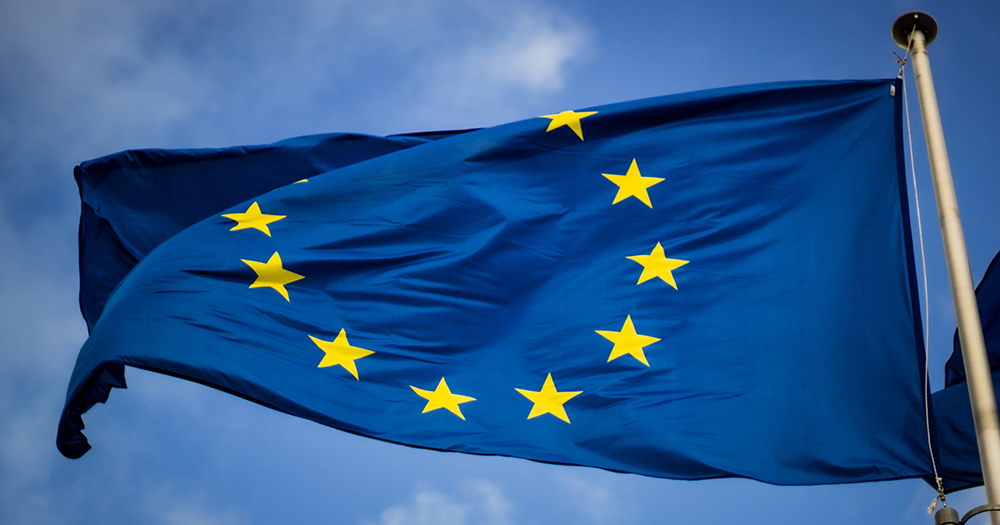In honour of World AIDS Day, European Movement Ireland’s Policy and Research Officer, Ciarán O’ Driscoll outlines how the European Union (EU) is working to tackle AIDS worldwide.
In September 2022, the European Commission announced that the Global Fund to Fight AIDS, Tuberculosis and Malaria, established in 2002, will receive €715 million, a new record amount, from the EU’s budget. In 2019, the EU pledged €550 million for 2020 – 2022.
This is just the latest effort by the EU to help fund the fight against AIDS, which spans decades, going back to the initial years of the AIDS crisis. However, this is a role that has expanded and deepened over time.
The first such EU funding programme was €14 million that was allocated between 1979 – 1981 for biomedical research into AIDS through the Medical and Health Research Programme.
However, it took several more years for the EU to introduce its first action plan, called Europe against AIDS. Through the provision of €6 million in funding for 1991 – 1993, it aimed to boost the exchange of information and experiences between relevant authorities in EU countries.
The 1993 Treaty of Maastricht introduced a supporting and coordinating role for the EU in public healthcare policy. Then, as it is now, the responsibility for healthcare policies and systems rests with EU countries.
Following the Treaty of Maastricht, the EU published The Framework for Action in the Field of Public Health in November 1993. It set out several initiatives, such as “a coordinated programme of health education and promotion measures will be developed aiming both at causal factors and specific diseases,” which included AIDS.
Later on, fresh momentum for the EU to act on eliminating AIDS came in the wake of the UN General Assembly’s Special Session on HIV/AIDS in June 2001, which stated that “the continuing spread of HIV/AIDS is a serious obstacle to the realisation of global development goals”.
In May 2004, during Ireland’s sixth-month rotating Presidency of the Council of the EU, the Irish Government hosted the Breaking the Barriers – Partnership to fight HIV/AIDS in Europe and Central Asia conference. It resulted in the Dublin Declaration, which made specific requests to strengthen the capacity of the EU to limit the spread of HIV/AIDS.
This was followed by the Europe and HIV/AIDS – New Challenges, New Opportunities conference in Vilnius, Lithuania in September 2004. The Vilnius Declaration called on the EU to “ensure coordination and cooperation in order to minimise duplication of efforts and maximise synergies”.
Based on these Declarations, and other commitments, the EU published in December 2005 an action plan “on combating HIV/AIDS within the European Union and in the neighbouring countries, 2006 – 2009”.
It outlined actions that the EU would carry out, which included increasing “commitments to research and development for vaccines and microbicides” for HIV/AIDS. It stated that the 2007 – 2013 Seventh Framework Programme would ensure research into HIV/AIDS would continue to be a priority for FP7.
FP7 provided over €175 million in HIV/AIDS research. Successful projects from this source of EU funding included the development of a “gel microbicide that successfully passed phase I trial, and the creation of a common virtual database with cohort data from over 350,000 HIV infected individuals.”
In more recent years, the EU has continued to introduce follow-ups actions plans after 2009, such as for 2009 – 2013 and 2014 – 2016. The FP7 was replaced by Horizon 2020 which ran from 2014 to 2020, wherein over €220 million was directed into AIDS fund research projects.
Current projects running from Horizon 2020 and its successor Horizon Europe, include EAVI2020 and EHVA. These projects “are generating predictive tools and developing and selecting the most promising vaccine candidates to be tested at an early stage of the process, thus enriching the global HIV vaccine pipeline.”
Other projects include the European AIDS Vaccine Initiative 2020, which “provides a platform for the discovery and selection of several new vaccine candidates for HIV/AIDS that can both prevent HIV infection and establish long-term remission of those infected.”
While the European HIV Vaccine Alliance “is an international pool of experts promoting a comprehensive approach to the development of an effective and multidisciplinary HIV vaccine platform.”
The selection of the research projects and initiatives mentioned here is just a small snapshot of the extensive efforts the EU is undertaking to eliminate AIDS from the world, as highlighted here. From modest beginnings in the late 1970s, the EU is now a global driving force in the fight against AIDS.
Ciarán O’ Driscoll is the Policy and Research Officer at European Movement Ireland, an NGO which seek to develop the connection between Ireland and the EU, and to achieve greater public understanding of and engagement with the EU.
© 2022 GCN (Gay Community News). All rights reserved.
Support GCN
GCN is a free, vital resource for Ireland’s LGBTQ+ community since 1988.
GCN is a trading name of National LGBT Federation CLG, a registered charity - Charity Number: 20034580.
GCN relies on the generous support of the community and allies to sustain the crucial work that we do. Producing GCN is costly, and, in an industry which has been hugely impacted by rising costs, we need your support to help sustain and grow this vital resource.
Supporting GCN for as little as €1.99 per month will help us continue our work as Ireland’s free, independent LGBTQ+ media.

comments. Please sign in to comment.